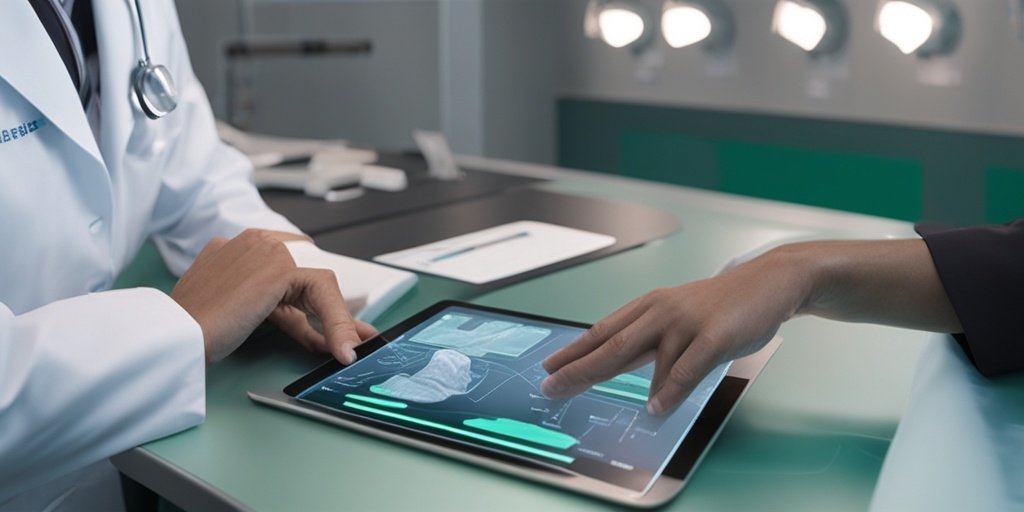⚡ Quick Summary
A recent study evaluated the ability of ChatGPT 4.0 to answer patient frequently asked questions (FAQs) about boxer’s fractures. The findings revealed that ChatGPT achieved a cumulative grade of B, indicating it can provide adequate responses with minor clarifications needed.
🔍 Key Details
- 📊 Study Focus: Patient FAQs regarding boxer’s fractures
- 🧑⚕️ Graders: Two orthopedic hand surgeons and one fellow
- ⚙️ Methodology: Grading responses on an A-F scale
- 🏆 Overall Grade: Cumulative grade of B
🔑 Key Takeaways
- 🤖 ChatGPT 4.0 can adequately answer FAQs about boxer’s fractures.
- 📈 Graders’ Consensus: Individual grades were B, B, and B+.
- 🩺 Medical Deference: ChatGPT deferred to a medical professional in 7 out of 10 responses.
- 🌟 General Questions: Graded at A- for clarity and accuracy.
- ⚠️ Management Questions: Received a lower grade of C+.
- 💡 AI in Healthcare: Highlights the potential of AI in patient education.

📚 Background
With the rise of the internet, patients are increasingly seeking answers to their medical questions online. This trend has led to the exploration of artificial intelligence tools, such as ChatGPT, to provide reliable information. In the realm of orthopedic hand surgery, understanding how well these AI systems can address patient concerns is crucial for enhancing patient education and engagement.
🗒️ Study
The study aimed to assess the accuracy of ChatGPT 4.0 in answering the ten most frequently asked questions about boxer’s fractures, identified through queries from five trusted healthcare institutions. The responses were evaluated by experienced orthopedic hand surgeons, who provided grades and commentary on the chatbot’s performance.
📈 Results
ChatGPT achieved a cumulative grade of B, indicating that it can provide adequate responses to patient FAQs. The individual graders offered comparable grades of B, B, and B+, with general questions receiving an impressive A- grade. However, management-related questions were graded lower, at C+, suggesting areas for improvement in the chatbot’s responses.
🌍 Impact and Implications
The findings of this study underscore the potential of AI technologies like ChatGPT in enhancing patient education. By providing reliable answers to common questions, these tools can empower patients and improve their understanding of conditions such as boxer’s fractures. However, the need for professional medical advice remains critical, particularly for management-related inquiries.
🔮 Conclusion
Overall, ChatGPT 4.0 demonstrates a promising ability to answer patient FAQs about boxer’s fractures, achieving a grade of B. While it provides adequate responses, there is room for improvement, especially in management-related questions. As AI continues to evolve, further research is essential to enhance its reliability and effectiveness in patient education.
💬 Your comments
What are your thoughts on the use of AI in answering medical questions? Do you believe tools like ChatGPT can play a significant role in patient education? 💬 Share your insights in the comments below or connect with us on social media:
Title: Can ChatGPT 4.0 Reliably Answer Patient Frequently Asked Questions About Boxer’s Fractures?
Abstract
BACKGROUND: Patients are increasingly turning to the internet, and recently artificial intelligence engines (e.g., ChatGPT), for answers to common medical questions. Regarding orthopedic hand surgery, recent literature has focused on ChatGPT’s ability to answer patient frequently asked questions (FAQs) regarding subjects such as carpal tunnel syndrome, distal radius fractures, and more. The present study seeks to determine how accurately ChatGPT can answer patient FAQs surrounding simple fracture patterns such as fifth metacarpal neck fractures.
METHODS: Internet queries were used to identify the ten most FAQs regarding boxer’s fractures based on information from five trusted healthcare institutions. These ten questions were posed to ChatGPT 4.0, and the chatbot’s responses were recorded. Two fellowship trained orthopedic hand surgeons and one orthopedic hand surgery fellow then graded ChatGPT’s responses on an alphabetical grading scale (i.e., A-F); additional commentary was then provided for each response. Descriptive statistics were used to report question, grader, and overall ChatGPT response grades.
RESULTS: ChatGPT achieved a cumulative grade of a B, indicating that the chatbot can provide adequate responses with only minor need for clarification when answering FAQs for boxer’s fractures. Individual graders provided comparable overall grades of B, B, and B + respectively. ChatGPT deferred to a medical professional in 7/10 responses. General questions were graded at an A-. Management questions were graded at a C+.
CONCLUSION: Overall, with a grade of B, ChatGPT 4.0 provides adequate-to- complete responses as it pertains to patient FAQs surrounding boxer’s fractures.
Author: [‘White CA’, ‘Kator JL’, ‘Rhe HS’, ‘Boucher T’, ‘Glenn R’, ‘Walsh A’, ‘Ki JM’]
Journal: Hand Surg Rehabil
Citation: White CA, et al. Title: Can ChatGPT 4.0 Reliably Answer Patient Frequently Asked Questions About Boxer’s Fractures?. Title: Can ChatGPT 4.0 Reliably Answer Patient Frequently Asked Questions About Boxer’s Fractures?. 2025; (unknown volume):102082. doi: 10.1016/j.hansur.2025.102082